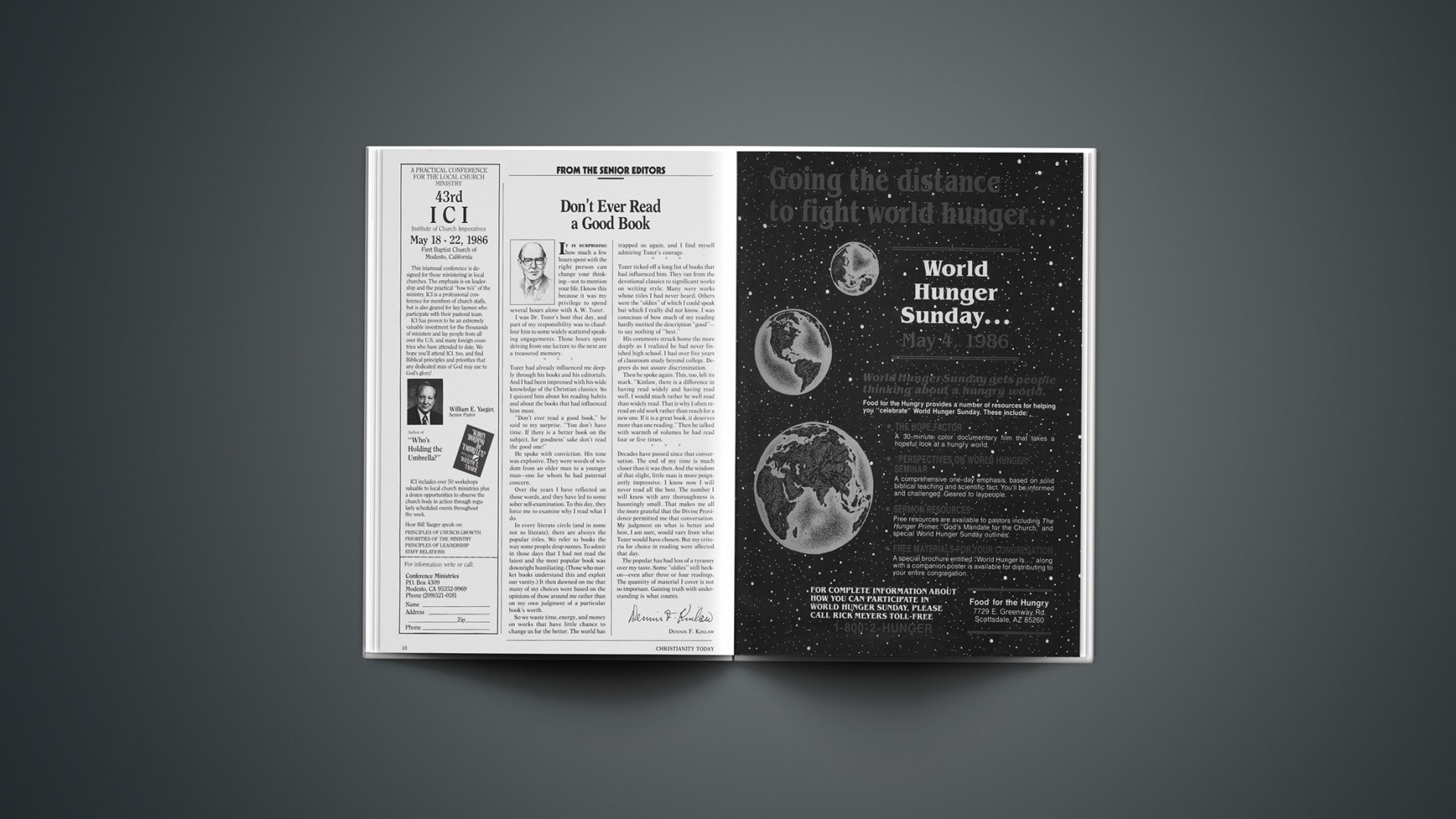It is surprising how much a few hours spent with the right person can change your thinking—not to mention your life. I know this because it was my privilege to spend several hours alone with A. W. Tozer.
I was Dr. Tozer’s host that day, and part of my responsibility was to chauffeur him to some widely scattered speaking engagements. Those hours spent driving from one lecture to the next are a treasured memory.
Tozer had already influenced me deeply through his books and his editorials. And I had been impressed with his wide knowledge of the Christian classics. So I quizzed him about his reading habits and about the books that had influenced him most.
“Don’t ever read a good book,” he said to my surprise. “You don’t have time. If there is a better book on the subject, for goodness’ sake don’t read the good one!”
He spoke with conviction. His tone was explosive. They were words of wisdom from an older man to a younger man—one for whom he had paternal concern.
Over the years I have reflected on those words, and they have led to some sober self-examination. To this day, they force me to examine why I read what I do.
In every literate circle (and in some not so literate), there are always the popular titles. We refer to books the way some people drop names. To admit in those days that I had not read the latest and the most popular book was downright humiliating. (Those who market books understand this and exploit our vanity.) It then dawned on me that many of my choices were based on the opinions of those around me rather than on my own judgment of a particular book’s worth.
So we waste time, energy, and money on works that have little chance to change us for the better. The world has trapped us again, and I find myself admiring Tozer’s courage.
Tozer ticked off a long list of books that had influenced him. They ran from the devotional classics to significant works on writing style. Many were works whose titles I had never heard. Others were the “oldies” of which I could speak but which I really did not know. I was conscious of how much of my reading hardly merited the description “good”—to say nothing of “best.”
His comments struck home the more deeply as I realized he had never finished high school. I had over five years of classroom study beyond college. Degrees do not assure discrimination.
Then he spoke again. This, too, left its mark. “Kinlaw, there is a difference in having read widely and having read well. I would much rather be well read than widely read. That is why I often reread an old work rather than reach for a new one. If it is a great book, it deserves more than one reading.” Then he talked with warmth of volumes he had read four or five times.
Decades have passed since that conversation. The end of my time is much closer than it was then. And the wisdom of that slight, little man is more poignantly impressive. I know now I will never read all the best. The number I will know with any thoroughness is hauntingly small. That makes me all the more grateful that the Divine Providence permitted me that conversation. My judgment on what is better and best, I am sure, would vary from what Tozer would have chosen. But my criteria for choice in reading were affected that day.
The popular has had less of a tyranny over my taste. Some “oldies” still beckon—even after three or four readings. The quantity of material I cover is not so important. Gaining truth with understanding is what counts.










